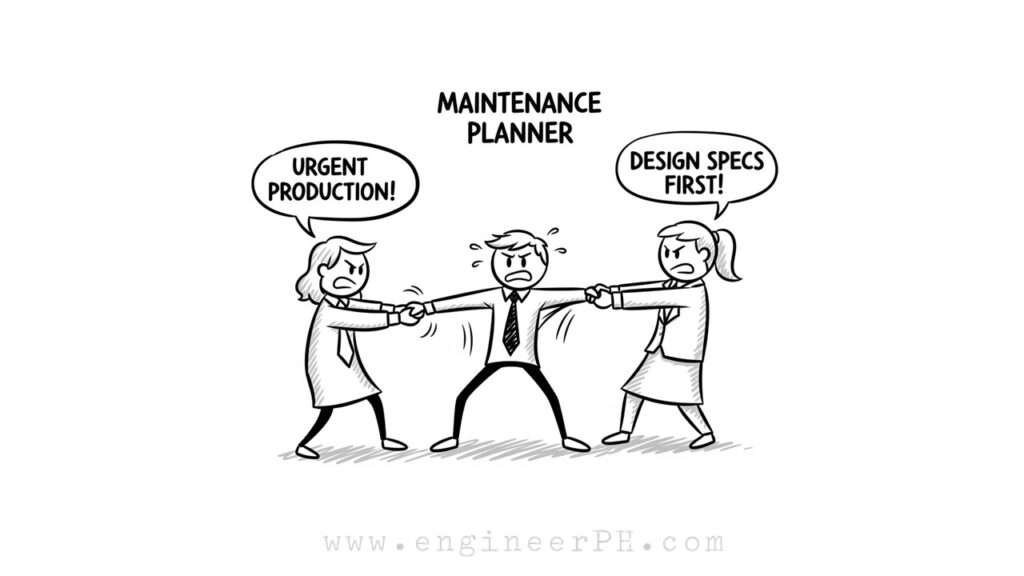Should Maintenance Planners Report to Operations or Engineering? The Great Debate!
Let’s tackle one of the biggest debates in the industrial world: where should maintenance planners report? This question has lingered for decades, and everyone—engineers, managers, even shop floor titos—has an opinion. It’s like asking your family if you should study engineering or medicine. If only there were an easy answer, right?
Operations focuses on output—keeping gears turning and products moving. When planners report here, they’re always informed and can quickly adapt to production changes. They form close ties with operators, who are often the first to notice problems. The downside? Planners get drawn into daily emergencies, sacrificing long-term equipment care for short-term fixes. It’s the classic ningas-kugon—great energy at the start, but burnout from constant firefighting.
Engineering focuses on the big picture: technical standards and asset health. Planners who report here escape the daily grind to craft detailed, rigorous plans. The downside? They may become disconnected from Operations, focusing so much on perfect plans that they forget the factory must continue to run. It’s like a meticulous, yet flawed, plan that falls apart in reality. Hay nako.

What’s the solution? World-class plants avoid a tug-of-war over planners. They offer planners independence and encourage collaboration.
Many of the best companies use a hybrid model, which allows maintenance to own the planner, ensuring that reliability remains front and center. As a result, the planner can focus on long-term asset health while still coordinating with other functions.
- Operations co-creates the weekly schedule, keeping production needs aligned with maintenance activities. This partnership helps avoid schedule conflicts and ensures that essential production goals are met alongside maintenance priorities.
- Engineering provides technical support, which helps maintain the quality and accuracy of maintenance planning. With strong engineering input, planners can create plans that are both practical and technically sound.
The key is letting planners work proactively, not reactively. They shouldn’t spend all their time rewriting schedules to meet Operations’ needs. Who wants that much stress?
So, what do you think? Where do you think planners belong? Under Operations, Engineering, or an independent team?
Article by: Engr. Jomel J. Kawi


